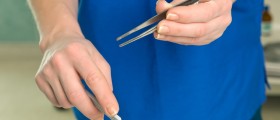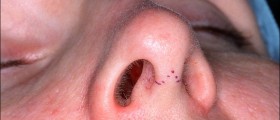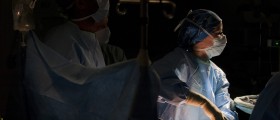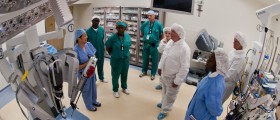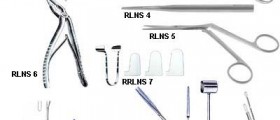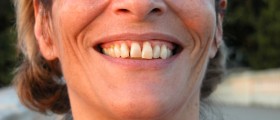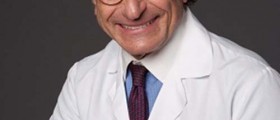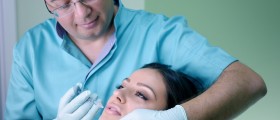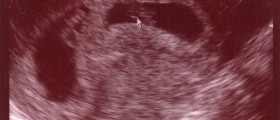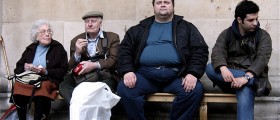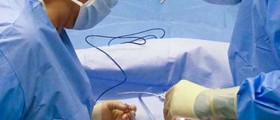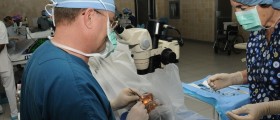there is no cure for empty nose syndrome! the most people die because of suicide. This is worse than cancer
Loading...
All who are planning to go for this surgery please avoid and be happy with what you got. Getting this surgery complicates your breathing issues. Get some other solution instead of surgery.
Please spread this message as much as possible as doctors won't be upfront. Lets atleast help others not get into these issues. Peace!
Loading...
Loading...
Loading...
Loading...
I've had almost no issues so far in my recovery. The procedure itself took only about an hour; I went into the operating theatre just after 10am, and woke up from the anasthetic at 12:45pm and went home the same evening. I did not have packing or splints, so I was pretty much bleeding from the minute I woke up.
First night (Thursday): not much sleep. The nose bandage is obviously necessary but it does get in the way. I had little appetite and couldn't settle down to sleep, so I kept dozing off waking up walking around in the dark repeat. I had very little pain - mostly a sore throat from the intubation and enforced mouth breathing.
Day one (Friday): I was basically a zombie. Started using the nasal rinse (I usually do that every morning anyway). The surgeon told me to do it four times a day but that I could do it more often if I wanted. I decided to do it every two hours. Lots of blood at first, gradually tapering off. Protip: the hospital/doctor should send you home with a supply of the nose bandages. To make them last longer, fold up some sterile gauze and put that into the sling part. It works! I had to drive back to the hospital yesterday (Saturday) to get more nose bandages because I was going through them too fast. Thanks to the nurse who gave me that advice.
I slept off and on all day on Friday. Forced myself to eat. Pretty sure I was shaking off the last of the anasthesia. Still no pain to speak of, although I was dosing regularly with Tylenol/Panadol just in case. Solely mouth breathing at this point, and my nose was tender when I twitched it involuntarily. I took a Panadeine Forte (paracetamol/acetaminophen and codeine 30mg) that night before bed, and it knocked me out enough to sleep for about six hours.
Day two (Saturday): Woke up at 4am absolutely starving. Did the rinse thing, had first breakfast, said a prayer of thanks for the existence of the internet. I felt a biiiiiit shaky when I left the house to go get more nose bandages, but that wore off quickly. It's fun wearing them outside. NOBODY wants to look at you. Heh.
This was a pretty okay day. Appetite back to normal. Continued the two-hourly rinses - this has been really helpful in terms of flushing out all the post-op bleeding. I took another Panadeine Forte at bedtime, around 9:30pm, fell asleep around 10pm, and slept almost right through until 7am.
Protip: DRINK WATER. LOTS OF IT. You'll pee a lot but it will honestly help your recovery.
Day three (today): Woke up feeling pretty okay! I've been able to breathe through my nose some of the time today, in between all the rinsing. That clogs things up some, because you can't blow your nose to get the excess rinse out. So I'm still wearing the bandage most of the time, although it gets in the way when I eat so I take it off then. Right now it's pushed down below my nostrils so I can breathe through my nose and still catch any discharge. Speaking of which, the discharge is mostly clear mucous now, with some minor blood in. I think the frequent rinsing has been good for avoiding any build-up of clots or crusting. I haven't had any major bits of gross stuff coming out, at least - definitely nothing like a period clot, which is kind of what I was expecting.
Right now, my glasses are annoying because they keep slipping down to the point where they're mildly uncomfortable. The roof of my mouth right behind my top front teeth is tender and feels cold - not sure what that's about but it's a bit like the last part of a local anasthetic wearing off after you've been to the dentist. I can definitely tell there are stitches all through my nose - they hurt a bit when twitching - but otherwise, on the 1-10 pain scale it's never gotten above a 2. The nose bandage sometimes presses against the bottom of my septum, which doesn't hurt, exactly, but the pressure isn't ideal (constant readjusting). I'm already counting the days until I can finally blow my nose. I've sneezed several times - no big deal, just make sure you do it through your mouth (obviously). Didn't hurt me a bit.
Seven more days until I see my surgeon for the follow up and go back to work. I'm feeling pretty good about things right now.
Loading...
How are steroid sprays and steam and decongestants meant to cure you?
There are 2 main issues. Infection usually bacterial and allergies. That's all. See an allergist before surgery!
They will tell you exactly what you have and cure you without surgery. Why get your bones cut out of your face when you lived so long without any issues!
Sinus infection is so common. The surgeon will never tell you about infection. Big clue there! Take 3 antibiotics. 1 oral every day and 2 creams such as bactroban and chlorsig. One cream 3 times a day for 5 days. 3 days no cream. Switch to the other cream for 5 days. 3 days no cream. Switch creams. And so on. For 2 to 6 months.
Loading...
People should try saline rinses, steroid sprays, antihistamines, for at least three months. If none of those help, an ENT is the best way forward. Sometimes a physical obstruction is the real issue, and in those cases surgery is the only thing that will help permanently. I'm living proof. I had a septoplasty/turbinoplasty two months ago and I haven't breathed this freely in years.
Loading...
Loading...
Loading...
Loading...
Hi all,
I know this thread is pretty old but I thought I'd comment on my surgery anyway!
It's coming up to 3 weeks after I had a bilateral turbinoplasty. I was one of the many that had researched the empty nose syndrome and completely freaked out and was so close to pulling out of the surgery. Before the surgery my nose wasn't actually too bad, most of the time I could breathe through at least one nostril, I didn't have any allergies so I have no clue why I couldn't breathe properly. I didn't want to risk getting empty nose syndrome when my breathing wasn't even too bad but I told myself to suck it up and went ahead with it anyway..
So far I think it's healing well?! I hope it is anyway. I don't really feel like my breathing has changed too much from how it originally was. Sometimes I'm still blocked on one side, and it often switches each nostril throughout the day but I can still breathe without having to do so through my mouth.
I didn't have any pain after the surgery, quite a lot of bleeding for the first 2/3 days though. Was terrified of sneezing, but sneezing through my mouth wasn't actually too bad!
Shining a torch up my nose now (nice I know) it still looks pretty dodgy up there, and I did actually just blow out a rather large black blood clot/scab and now that one nostril feels slightly weird and sensitive.
What are the chances I could still develop empty nose syndrome? I'm still panicking that it could present itself after its fully healed. Would I know if I had it by now?
Overall the surgery wasn't as bad as I thought it was going to be, i didn't have any pain after, got back to normal pretty quickly. I would tell everyone reading this not to panic too much, not that people telling me that helped me at all ;D but good luck to all that are having it done in the future, I know it's scary as hell.
And any reassurances re the empty nose syndrome will be welcomed greatly!
Thanks :)
Loading...
I have had this horrible experience of halitosis for a couple of years,I didn’t understand what caused it or where it came from. I had my tonsils removed in 2012, so no doubt about the tonsil stones. When I visited ENT doctor, he suggested I get the sinus CT scan. He later observed that my sinuses were clear but also didn’t notice the turbinates were enlarged which was clearly indicated on the CT Scan report. Trying to get rid of the halitosis, he prescribed some acid reflux medication, with no tests done. Well the desperate me took them till end, but the bad breath was still present.
I later decided to see a gastrointestinal surgeon who recommended endoscopy test. I discovered my stomach was slightly eroded and also presence of H.Pylori bacteria. I was medicated for 1 month and I think the bacteria is gone, am yet to go back for another test. The gastrointestinal surgeon also recommended I get a second opinion on the sinuses issue.
I booked appointment with another ENT doctor who indicated that my turbinates were enlarged and suggested endoscopic turbinoplasty. After surgery, I wouldn’t feel anything within the first few hours but later the pain was so intense, I felt like my spinal cord was breaking into pieces. Stayed with the package for one week. The second week I was able to breathe normally and it felt different. The passage was clear with the breathing but I had a lot of sticky drainage that didn’t come off so easily. During my second appointment, the doctor was able to suction it out.
It’s now the 3rd week since surgery and I breath well. The bad breath I use to have is gone and the kind of smell I feel now is that of healing wound. My doctor has been so supportive and sensitive too, he assured me that the bad breath will go away in one month. I trust him on this because I can feel the change. He also he recommended nasal irrigation on second week, few days after package removal. The nasal irrigation isn’t removing all the crusts, I will go back to him for more cleaning.
This surgery saved my life.
Loading...
You still may have abnormalities in your nose like closed ethmoid cell, etc... due to scarring after previous surgery. There may be cell that has swollen ostium and drains abnormally. I believe you should make CT and MRI scans and try reading it yourself. I had very weird situation when I had posterior part of my inferior turbinate enlarged and it was possible to clearly see it only on MRI. Situation improved after the turbinate was reduced by microdebrider. Also please make bacterial culture tests in other laboratories. Maybe you have some other infection that has to be treated (e.coli, fungus...).
Loading...




